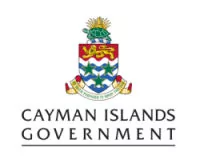The Cayman Islands has passed The Companies (Amendment) (Segregated Portfolio Companies) Law.
The new law provides the requisite framework for the formations of rent-a-captives and is at present applicable only to captive insurance companies. The Segregated Portfolio Companies (SPC) Law is Cayman's response to the industry demand for a structure to cater to small-to-medium-sized insurance companies for whom it may be uneconomic to establish their own captive or who may be unable, by themselves, to meet the specified capital requirements.
This legislation allows for the legal segregation of the assess and liabilities of individual portfolios - known in some parts of the world as "cells" - from the general assets of the "core" company as well as from each other. Shares are created in the "core" company or segregated portfolio company (SPC). The proceeds become the assets of the segregated portfolio. Separate accounts must be prepared in respect of the SPC and of each individual segregated portfolio. Dividends may be paid in respect of both.
The law also addresses two prominent industry concerns relations to SPCs. Firstly, each individual portfolio is legally separated from other portfolios, so that an insolvent portfolio cannot access the individual assets of any other portfolio. Secondly, the ability of an insolvent portfolio to access the general assets of the core company facilitates beneficial tax treatment for an insured.
There is already strong indication that the Law is proving popular with the Insurance Department of the Cayman Islands Monetary Authority is currently considering a number of (SPC) applications.
"The SPC legislation has generated a good deal of interest within the international insurance community and is clearly living up to expectations. This is already proving a great asset to Cayman," said William McCullough, Head of insurance Supervision at the Cayman Islands Monetary Authority.
The content of this article is intended to provide a general guide to the subject matter. Specialist advice should be sought about your specific circumstances.
For further information on the above please contact Miranda Pugh.

